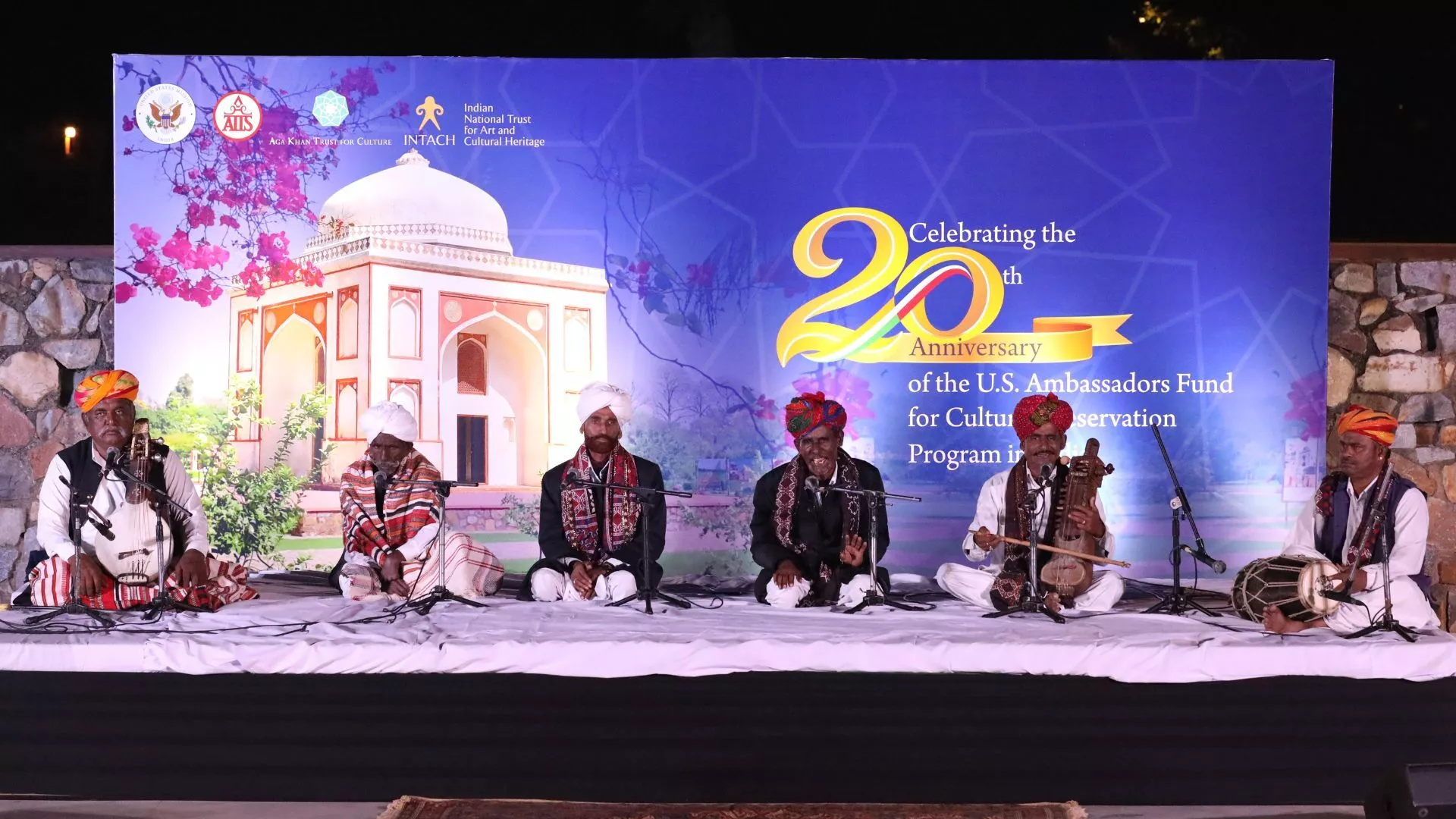The United States Ambassadors Fund for Cultural Preservation (AFCP) celebrated 20 years of projects in India in 2022. The United States Mission in India, through AFCP, has partnered with conservation agencies to protect and restore historic sites and intangible cultural heritage, and celebrate India’s diverse cultures and traditions.
November 2022

The AFCP program in India has helped support the preservation of historic buildings and monuments, archeological sites and intangible heritage. The U.S. Mission in India celebrated 20 years of AFCP in India on November 29, 2022.
The 16th-century Batashewala Mughal Tomb Complex in New Delhi was almost lost to neglect and decay, until the United States Ambassadors Fund for Cultural Preservation (AFCP) Grants Program provided funds to the Aga Khan Trust for Culture (AKTC)—a private philanthropic foundation—to restore the site’s historical and architectural integrity. This restoration project started in 2011 and the site was opened to the public in 2015.
The United States Mission in India, through the AFCP, has worked with conservation agencies to document, conserve and restore historical tangible and intangible heritage for the last two decades. It has funded the restoration of 23 key historic sites and heritage, like the Batashewala tomb.
The Batashewala tomb shares space in Humayun’s Tomb complex—a UNESCO World Heritage—with Sunderwala Burj and the Arab Serai Complex Gateway, all restored in collaboration with the AFCP. In 2022, the United States Mission in India commemorated 20 years of support through the AFCP at Sunder Nursery—home to the Sunderwala Burj.
The AFCP program in India has helped support the preservation of historic buildings and monuments, archeological sites, museum collections, ethnographic objects, paintings, manuscripts, indigenous languages, and other forms of traditional cultural expression across the country.
The AFCP funds have also been used to record and transcribe endangered folk music of western Rajasthan’s Langa and Manganiyar communities, and to preserve palm leaf manuscripts and rare books at the United Theological College in Bangalore.
“India’s rich cultural heritage has had a profound impact on the United States, and on the world,” U.S. Chargé d’Affaires Patricia Lacina said at the ceremony commemorating 20 years of AFCP in India, on November 29, 2022. “The United States is proud to partner with India. We remain committed to our joint efforts to protect, preserve, and promote cultural heritage and look forward to continuing our important work in the future,” she added.
Besides preservation and restoration of tangible and intangible heritage, AFCP projects also have a significant economic impact. They strengthen traditional construction industries, employ Indian artisans and engage women and youth. “Cultural heritage preservation is much more economically valuable than we think,” said AKTC CEO Ratish Nanda. “Not only does it bring in tourism; it also empowers local communities with jobs, education, and autonomy,” he added. The AKTC, under the leadership of Nanda, was responsible for the garden restoration of Humayun’s Tomb in New Delhi.
The AFCP was created by the U.S. Department of State in 2001 to demonstrate American values and respect for other cultures. Purnima Mehta, director general of American Institute of Indian Studies (AIIS), said the AFCP projects “promote and advance mutual understanding between the citizens of the United States and India.”
The Ambassadors Fund has supported more than 1,100 projects worldwide since 2001. In India, the American people have invested more than $2 million over the past two decades.
COMMENTS